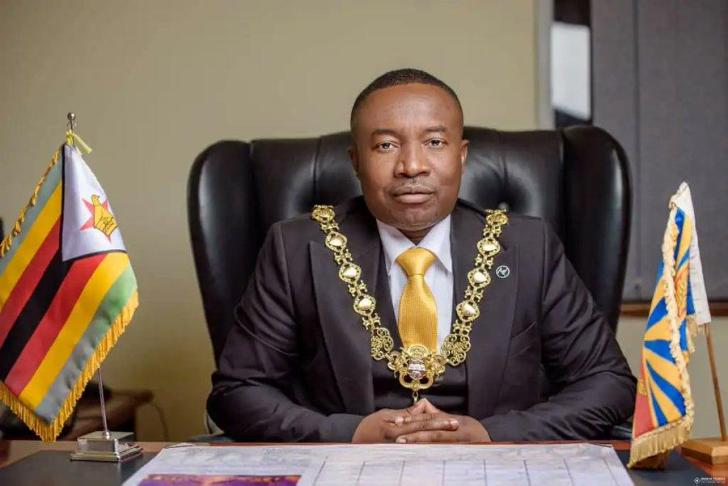News / National
Skills audit for Harare council staff
07 May 2025 at 14:48hrs |
0 Views

Harare City Council has announced plans to undertake a comprehensive skills audit as part of efforts to address persistent concerns over poor service delivery and a possible mismatch between staff qualifications and the city's operational needs.
Despite employing a workforce described as highly educated on paper, the city continues to struggle with basic service provision, including frequent sewer system failures and unreliable access to clean water - issues that have drawn growing criticism from residents and officials alike.
At the Council's 1 935th ordinary meeting, Harare Mayor Councillor Jacob Mafume stressed the urgency of reassessing the qualifications and suitability of municipal employees.
"The mess we have and the qualifications that are there are not correlating. We have highly qualified people in the city, but the performance is dismal," said Clr Mafume. "I am sensing there are some fake degrees. We need meticulous verification of some individuals' qualifications."
The audit is expected to examine whether existing staff credentials genuinely match the requirements of their roles and whether individuals were appropriately placed within departments.
Clr George Mujajati, who chairs the human resources and general purposes committee, echoed Mafume's concerns and broadened the scope of the problem.
"It's not just about degrees. We also need to verify even Ordinary Level certificates, as we are concerned about the performance of some individuals," he said, suggesting that deeper inefficiencies may be rooted in both recruitment and placement processes.
The proposed skills audit follows growing frustration among Harare's residents, who have long complained of worsening service levels despite a well-staffed municipal bureaucracy. It also comes at a time when cities across Zimbabwe are under pressure to modernise infrastructure and improve accountability.
In addition to the audit, councillors also discussed a range of other issues affecting urban life, including persistent noise pollution and public safety concerns.
Clr Happymore Gotora reported a surge in complaints from residents disturbed by excessive noise from entertainment venues, particularly in residential neighbourhoods. In response, the Council resolved to direct relevant departments to enforce existing noise control by-laws more stringently.
Acknowledging the importance of nightlife and leisure in urban settings, Clr Mafume suggested the idea of designating a specific entertainment district—an initiative inspired by similar approaches in global cities—to ensure that social activities do not compromise residents' peace.
"We must strike a balance. Entertainment must be part of the city, but it must be regulated. We could have a designated street for such activity, where noise is expected and controlled," Mafume said.
The Council also tackled public safety concerns arising from stray and aggressive dogs. Residents have reported multiple attacks in various neighbourhoods, prompting a renewed call for the enforcement of the city's Dog Licencing and Control By-Laws.
While the regulations outline clear responsibilities for dog owners, enforcement has been lacking. Councillors urged immediate action to curb the threat posed by unlicensed and dangerous dogs roaming the city.
As Harare grapples with administrative inefficiencies and urban management challenges, the Council hopes that the skills audit and other regulatory interventions will restore public trust and improve the quality of life for its nearly 2 million residents.
Despite employing a workforce described as highly educated on paper, the city continues to struggle with basic service provision, including frequent sewer system failures and unreliable access to clean water - issues that have drawn growing criticism from residents and officials alike.
At the Council's 1 935th ordinary meeting, Harare Mayor Councillor Jacob Mafume stressed the urgency of reassessing the qualifications and suitability of municipal employees.
"The mess we have and the qualifications that are there are not correlating. We have highly qualified people in the city, but the performance is dismal," said Clr Mafume. "I am sensing there are some fake degrees. We need meticulous verification of some individuals' qualifications."
The audit is expected to examine whether existing staff credentials genuinely match the requirements of their roles and whether individuals were appropriately placed within departments.
Clr George Mujajati, who chairs the human resources and general purposes committee, echoed Mafume's concerns and broadened the scope of the problem.
"It's not just about degrees. We also need to verify even Ordinary Level certificates, as we are concerned about the performance of some individuals," he said, suggesting that deeper inefficiencies may be rooted in both recruitment and placement processes.
In addition to the audit, councillors also discussed a range of other issues affecting urban life, including persistent noise pollution and public safety concerns.
Clr Happymore Gotora reported a surge in complaints from residents disturbed by excessive noise from entertainment venues, particularly in residential neighbourhoods. In response, the Council resolved to direct relevant departments to enforce existing noise control by-laws more stringently.
Acknowledging the importance of nightlife and leisure in urban settings, Clr Mafume suggested the idea of designating a specific entertainment district—an initiative inspired by similar approaches in global cities—to ensure that social activities do not compromise residents' peace.
"We must strike a balance. Entertainment must be part of the city, but it must be regulated. We could have a designated street for such activity, where noise is expected and controlled," Mafume said.
The Council also tackled public safety concerns arising from stray and aggressive dogs. Residents have reported multiple attacks in various neighbourhoods, prompting a renewed call for the enforcement of the city's Dog Licencing and Control By-Laws.
While the regulations outline clear responsibilities for dog owners, enforcement has been lacking. Councillors urged immediate action to curb the threat posed by unlicensed and dangerous dogs roaming the city.
As Harare grapples with administrative inefficiencies and urban management challenges, the Council hopes that the skills audit and other regulatory interventions will restore public trust and improve the quality of life for its nearly 2 million residents.
Source - online
Join the discussion
Loading comments…































